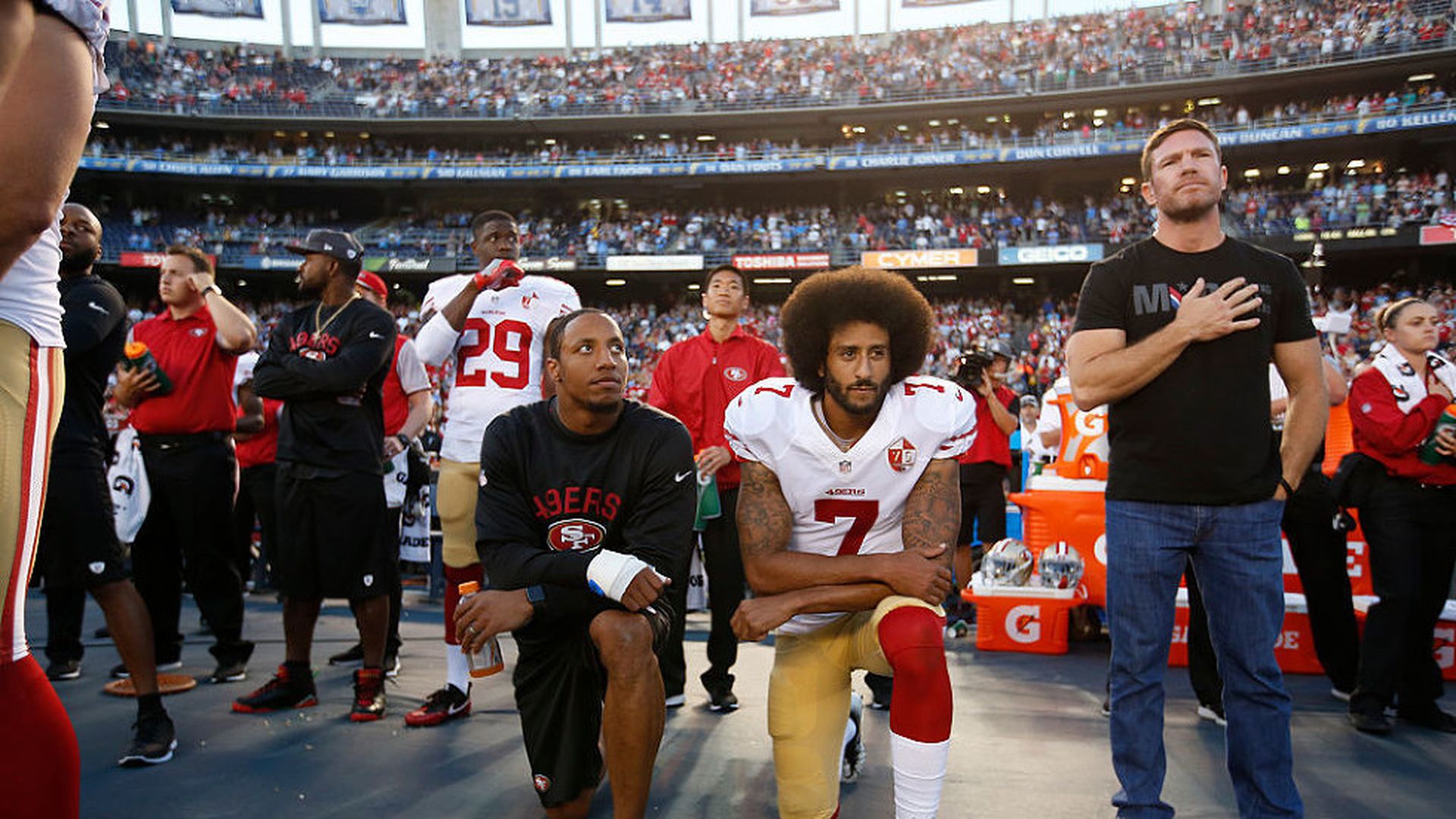
Kaepernick, center, in 2016. Photo: Michael Zagaris / Getty
Lawyers for the NFL are expected this week to begin handing over documents sought by Colin Kaepernick. The NFL quarterback is suing the league for allegedly blackballing him because of his political protest of the treatment of African-Americans at the hands of police. Legal experts say he will have a tough time proving his collusion case, but Mark Geragos, his lawyer, tells Axios that's because they do not understand the law.
Why it matters: Essentially a right-to-work case, the lawsuit is highly politicized. Since Kaepernick began going down on a knee during the national anthem before his games in 2016, dozens of other players followed suit, making him a proud symbol for African-American athletes and others sharing his views. At the same time, he became a lightning rod for critics, including President Trump, who said he was unpatriotic and disrespecting the flag.
The background: In 2012, Kaepernick led the San Francisco 49ers to the Super Bowl, their first appearance since 1994. The team reached the conference final the next season, and failed to get to the playoffs for the next three seasons. Kaepernick opted out of his contract in March 2017. He has not played since.
- There are 64 quarterback slots in the league when you count backups, and several have been signed since Kaepernick became a free agent despite having seemingly lesser ability than him. Kaepernick claims that is circumstantial evidence of a conspiracy to keep him off the field.
- The NFL collective bargaining agreement bars the teams from deciding collectively "to negotiate or not to negotiate with any player."
Brad Snyder, a law professor at Georgetown, tells Axios that it will be difficult for Kaepernick to prove the agreement was violated— that there was collusion among the teams. "It's very possible that all the teams came to this same conclusion that, 'We don't want to hire this guy.' That's not illegal."
- But Geragos says that he needs only an implied agreement among one or more teams. "We are confident that at a minimum we will be able to prove that the [Collective Bargaining Agreement] impliedly was violated by circumstantial evidence. We expect that direct and express evidence exists as well."
The bottom line: Legal experts appear to largely agree that Kaepernick was singled out for his politics.
- "Were it not for his political stance, he'd be employed right now," said Jeremi Duru, a law professor at American University. "It's not sensible to me. Many people have protested since and more loudly than Kaepernick, but they weren't first."
- Said Paul Haagen, a law professor at Duke, "This is an extraordinarily competitive environment in which marginal differences count a lot. Given how he's performed when he's played, it's a little surprising that no one wants him."
Kaepernick declined to comment.
